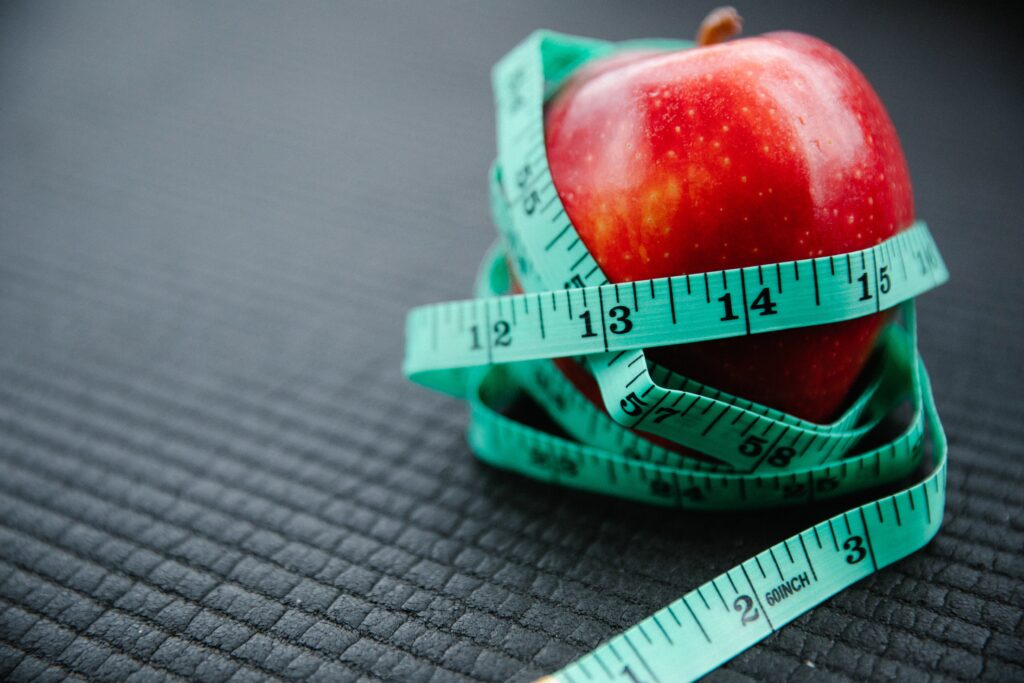Introduction
Losing weight is a journey that requires dedication, patience, and a well-designed plan. However, the key to real success lies in creating a sustainable weight loss plan. This means adopting healthy habits that you can maintain over the long haul. In this blog post, we’ll explore some valuable tips to help you build a weight loss plan that ensures not only initial success but also lasting results.
Set Realistic Goals
Begin by setting achievable, realistic goals. Aim to lose weight at a steady and healthy pace, typically 1-2 pounds per week. Unrealistic expectations can lead to frustration and ultimately derail your progress.
A sustainable weight loss plan is one that you can maintain forever. You need to be able to maintain your weight loss for the rest of your life, and if you don’t lose weight, what will happen?
One way to do this is by planning for maintenance in advance. For example, if you’re trying to lose 10 pounds but only end up losing 5 over the course of two months (and then gaining back 2), then instead of giving up on healthy eating altogether because “it didn’t work,” consider keeping up those healthy habits as part of a new plan: Eat less junk food and make sure I get enough exercise every day! This way instead of feeling like failure after failure at losing weight–which can lead many people down an unhealthy path–you’ll keep moving forward with confidence knowing that eventually they’ll see results from their hard work!

Focus on Balanced Nutrition
The next step is to balance your diet with lots of fruits and vegetables, lean protein (like chicken breast) and whole grains like brown rice or whole wheat pasta.
A sustainable weight loss plan is built on a foundation of balanced nutrition. Instead of crash diets or extreme restrictions, aim for a well-rounded diet that includes a variety of whole foods. Prioritize vegetables, lean proteins, whole grains, and healthy fats. Avoid labeling foods as “good” or “bad” and aim for moderation.
Whole grains are good for you, but don’t overdo it: They’re high in fiber and vitamins that keep you feeling full longer than processed carbs do–but too much can lead to weight gain. So stick to small amounts of healthy foods instead of large amounts of unhealthy ones!
Portion Control
Learning to manage portion sizes is a key skill. Use smaller plates, bowls, and utensils to help control your portions. Pay attention to your body’s hunger and fullness cues, and avoid eating out of boredom or stress. Eat multiple small meals and snacks throughout the day rather than 3 large ones to keep your metabolism going strong all day long.
- Eat every 2-3 hours. This will keep your metabolism going strong all day long and prevent the temptation to overeat at meals.
- Eat a healthy breakfast, lunch and dinner. Include lean proteins, whole grains and vegetables at each meal to ensure you’re getting enough nutrients for your body’s needs.
- Don’t skip meals–especially breakfast! Skipping breakfast can cause an energy dip later in the day as well as hamper weight loss efforts by making it more difficult to control hunger pangs throughout the rest of your day.* Don’t overeat! Eating too much food will cause extra calories that are stored as fat on your body instead of being used for energy or burned off through exercise.*
Stay Hydrated
Adequate hydration is essential for weight loss and overall health. Drinking water can help control your appetite and prevent overeating. Aim to drink water throughout the day, and consider having a glass before meals to help control portion sizes.
Regular Physical Activity
Incorporate regular exercise into your routine. Find physical activities you enjoy, whether it’s walking, swimming, cycling, or dancing. Consistency is key, so choose activities you can realistically stick with over the long term.
Sleep Matters
Don’t underestimate the importance of sleep. Poor sleep can disrupt your metabolism and increase cravings for unhealthy foods. Aim for 7-9 hours of quality sleep each night.
Mindful Eating
Pay attention to what you eat. Avoid distractions like television or smartphones during meals. Chew your food slowly and savor the flavors. In addition, you can take weight loss supplements. This practice can help you recognize when you’re full and prevent overeating.
Accountability and Support
Consider involving a friend, family member, or a support group in your weight loss journey. Sharing your goals and progress with someone can provide motivation and keep you accountable.
Focus on your health rather than the number on the scale
When you’re trying to lose weight, the number on the scale can be a huge source of frustration. It’s easy to get discouraged when your weight loss efforts don’t seem to be paying off or if you see that number going up instead of down. But instead of focusing on what it means for your body fat percentage or BMI (body mass index), try thinking about how good it feels when you hit some milestones along the way:
- When I can fit into my old jeans again!
- When my clothes start feeling looser than before I started losing weight!
These smaller achievements are just as important as having lost 20 pounds–and they’re much more fun than worrying about whether or not there are still two pounds left until your goal weight is reached!

You can lose weight for good if you eat smart and exercise regularly
Eat more fruits and vegetables. Fruits and vegetables are packed with nutrients, fiber and water, all of which help you feel full longer. You can also try to eat more low-fat dairy products like yogurt or cheese because they contain protein which helps you feel full longer as well.
Make sure that you get enough fiber in your diet every day by eating whole grains instead of refined ones (such as white bread), fruits with edible peels (such as apples), legumes (beans) and nuts instead of sweets or high-fat snacks such as chips/fries etc., since these foods don’t contain any fat but still fill up our stomachs quickly thus preventing us from overeating later on during the day!
Don’t eat too much fat: Foods high in fat such as cheese burgers may taste great but unfortunately they also make us gain weight over time because most people cannot resist stuffing themselves with them again after they’ve already eaten one; this leads them down an unhealthy path where their bodies become dependent upon food for energy instead–which means less exercise needed later down the road…and eventually obesity problems if left untreated long enough!
Conclusion
A sustainable weight loss plan is not about quick fixes or temporary changes. It’s about adopting healthy habits that you can maintain for the long term. By setting realistic goals, focusing on balanced nutrition, staying active, and making mindful choices, you’ll be well on your way to achieving your weight loss goals and maintaining a healthier lifestyle. Remember, small, consistent steps lead to significant, lasting results.